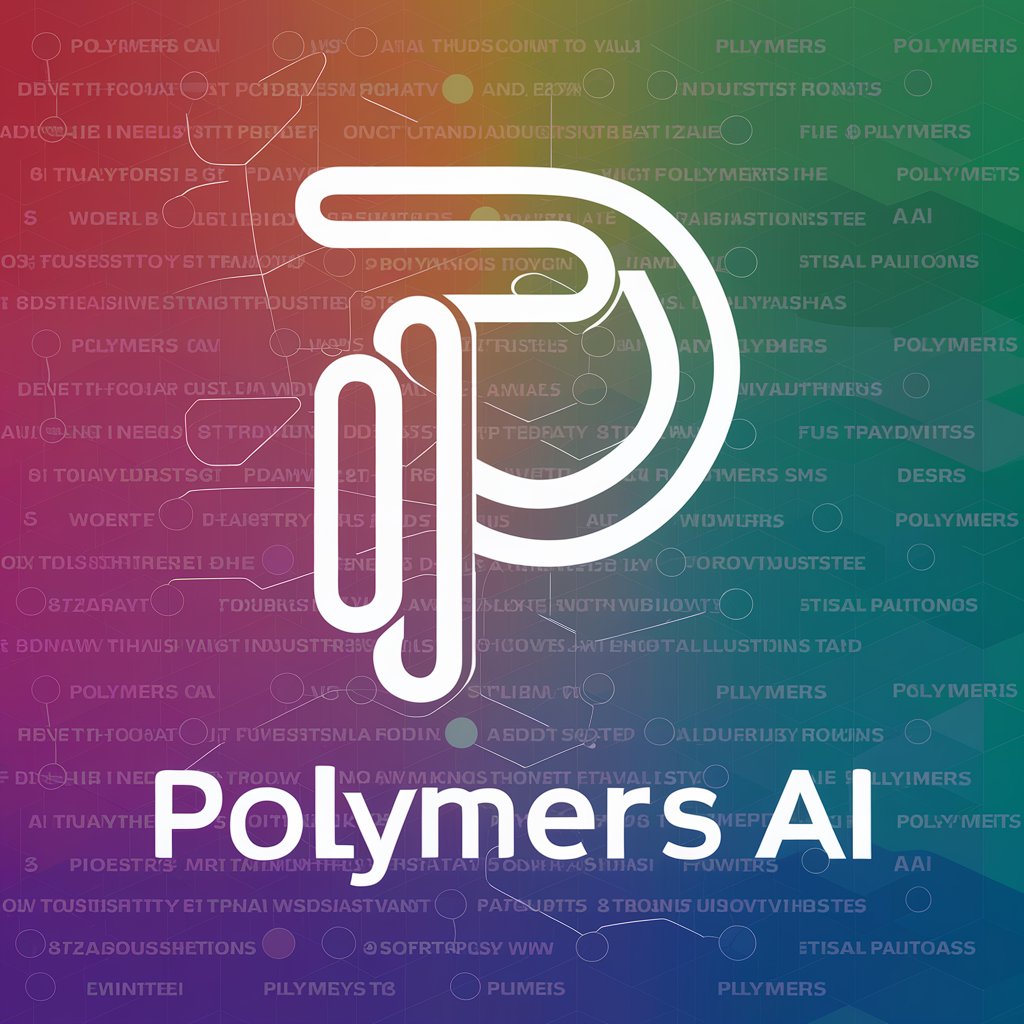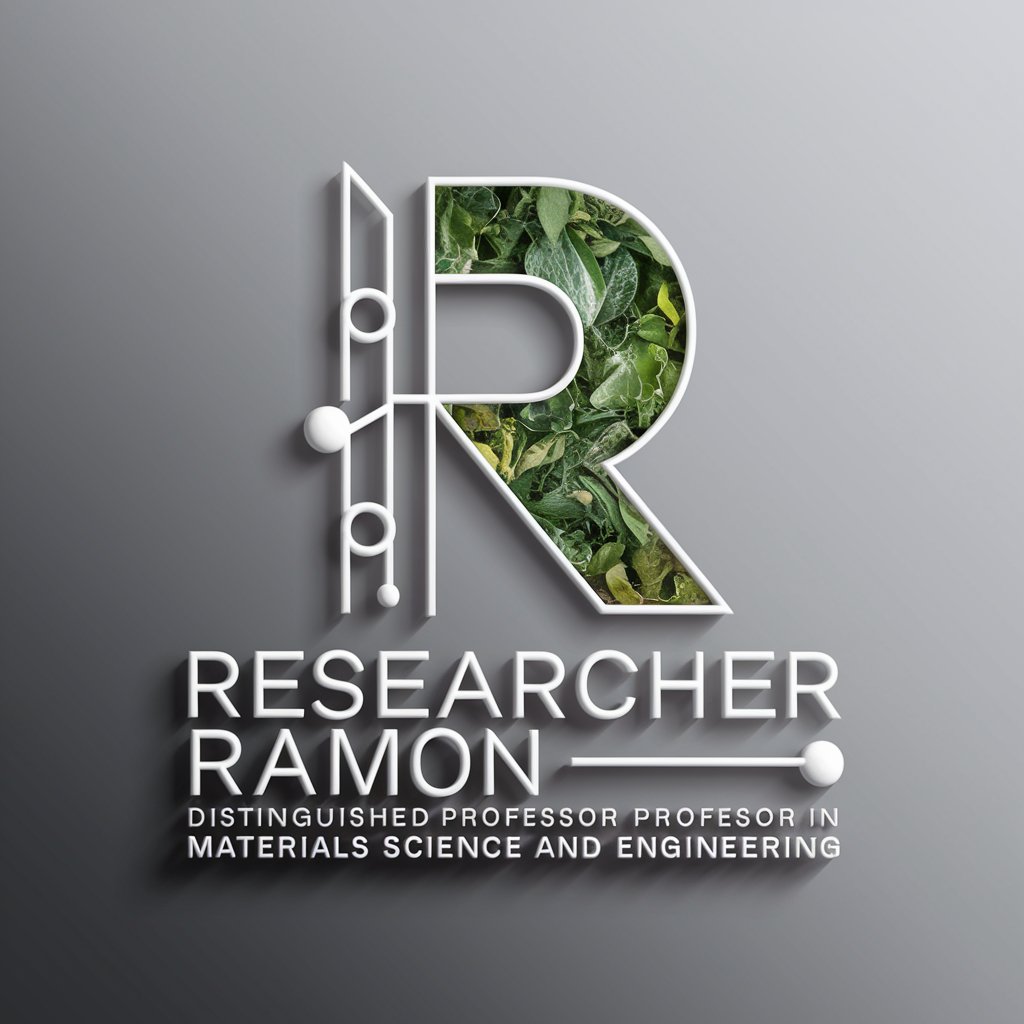6 GPTs for Materials Science Powered by AI for Free of 2026
AI GPTs for Materials Science are advanced tools designed to leverage the power of Generative Pre-trained Transformers (GPTs) for applications in the field of materials science. These tools are fine-tuned to understand and generate content relevant to materials science, aiding in research, development, and innovation. By processing vast amounts of data, they provide insights, predict material properties, assist in the design of new materials, and solve complex problems specific to this domain. The incorporation of GPTs in materials science marks a significant advancement, offering tailored solutions that enhance efficiency, accuracy, and innovation.
Top 6 GPTs for Materials Science are: Polymers,ForgeAI,Researcher Ramon by Incanta,Material Maven,Ti-6Al-4V,Electron Extended Model
Polymers
Unlocking Polymer Potential with AI

ForgeAI
Empowering innovation with AI in design and manufacturing

Researcher Ramon by Incanta
Unlocking the future of materials science with AI

Material Maven
Your AI Companion for Materials Science.

Ti-6Al-4V
Powering Aerospace Innovation with AI

Electron Extended Model
Revolutionizing Electron Physics with AI

Essential Attributes and Functions of AI GPTs in Materials Science
AI GPTs for Materials Science stand out due to their adaptability, ranging from basic query answering to complex predictive analytics and materials design. Key features include natural language processing for technical documentation, advanced data analysis for property prediction, and the ability to generate synthetic data for research. Specialized features may include integration with databases for real-time information retrieval, image analysis for material structure identification, and custom model training capabilities for specific materials science applications.
Who Can Benefit from AI GPTs in Materials Science?
The primary beneficiaries of AI GPTs tools in Materials Science include researchers, engineers, educators, and students within the field. These tools are accessible to novices seeking foundational knowledge, as well as to experts requiring advanced analysis and predictive capabilities. Additionally, developers can leverage these AI tools to create customized applications, making them a versatile asset for both educational purposes and professional material science projects.
Try Our other AI GPTs tools for Free
Biodegradable Products
Explore how AI GPTs for Biodegradable Products revolutionize sustainability efforts, offering tailored, innovative solutions for the entire lifecycle of eco-friendly products.
Conducting Polymers
Discover how AI GPTs for Conducting Polymers are revolutionizing material science with advanced predictive modeling, data analysis, and simulation capabilities tailored to the field.
Trip Advisor
Discover how AI GPTs for Trip Advisor transform travel planning with personalized advice, real-time recommendations, and advanced booking capabilities, all through an intuitive AI-driven platform.
Sermon Support
Discover how AI GPTs for Sermon Support revolutionize sermon preparation and delivery with tailored, insightful content for religious leaders and educators.
Sermon Assistance
Discover how AI GPTs revolutionize sermon preparation, offering tailored content generation, research support, and insightful analyses to enrich spiritual teachings.
Seasonal Cleaning
Discover AI-powered GPTs for Seasonal Cleaning, designed to revolutionize your cleaning routine with personalized schedules, smart integrations, and intuitive advice, all accessible through user-friendly interfaces.
Expanding Horizons with AI GPTs in Materials Science
AI GPTs tools in Materials Science are revolutionizing the field by offering customizable, efficient, and intelligent solutions. Their ability to adapt to various tasks, coupled with user-friendly interfaces, makes them integral for future developments. By integrating these tools into existing systems, researchers and professionals can unlock new potentials, streamline workflows, and foster innovation in materials science.
Frequently Asked Questions
What exactly are AI GPTs for Materials Science?
AI GPTs for Materials Science are specialized versions of Generative Pre-trained Transformers that are tailored for analyzing, predicting, and generating content related to materials science. They utilize machine learning to process and synthesize information relevant to materials properties, design, and innovation.
How do AI GPTs tools improve materials science research?
These tools accelerate research by providing quick access to information, predicting material properties, assisting in the design of new materials, and offering solutions to complex problems through data analysis and synthesis.
Can AI GPTs in Materials Science generate technical documentation?
Yes, they are capable of generating and understanding complex technical documentation, making them invaluable for drafting research papers, reports, and proposals in the materials science domain.
Are there any customization options for these AI tools?
Yes, AI GPTs for Materials Science can be customized to suit specific research needs or projects. This includes training on specialized datasets, integrating with existing databases, and tailoring the AI's responses to specific material science queries.
Do I need coding skills to use AI GPTs in Materials Science?
No, many of these tools are designed with user-friendly interfaces that require no coding skills. However, for advanced customization and integration, programming knowledge could be beneficial.
How do these tools integrate with existing materials science workflows?
AI GPTs can be integrated with existing workflows through APIs, custom software solutions, or direct implementation into research and development processes. This allows for seamless interaction and enhances productivity.
What types of data analysis can AI GPTs perform in this field?
They can perform a variety of analyses, including property prediction, trend analysis, data mining from scientific literature, and synthetic data generation for experimental planning.
Are AI GPTs for Materials Science capable of image analysis?
Yes, some models are equipped with image analysis capabilities, enabling them to identify material structures, analyze microscopy images, and assist in the characterization of materials.